
Motor industry executive and Ampthill director of rugby Mark Lavery tells NEALE HARVEY why the game is stuck in the slow lane and could face even tougher times ahead as clubs at all levels grapple with the financial fallout of the coronavirus pandemic.
As a businessman with a huge passion for rugby, how hard have the last seven months been?
It’s been difficult nationally and outside of a war there’s not many people alive who’ve faced anything like this. To shut a developed economy down for nine weeks has put a burden on all people in the game – the people administering rugby as much as the playing group. It’s been difficult for players from a mental health perspective because they respond well when everyone’s together and the opportunities to do that have been severely restricted. Then, economically, I don’t think the full problems have really started yet either. That starts when the furlough scheme concludes at the end of October and what the government does by way of subsequent support. There are some real challenges coming over the horizon.
Can you define those challenges?
Rugby’s model before the pandemic was quite difficult when you look at the financial losses of the Premiership clubs. They’re playing without crowds now and looking at next year, dependent on the crowd situation, I think there are some real issues that haven’t been addressed yet. The perception prior to the ‘rule of six’ coming in was that this (Covid-19) had gone and the younger generation in particular don’t appear to be terribly concerned about the spread, but I think it’s a time to be extra vigilant because if crowds don’t come back the game’s in big trouble.
What issues have still to be addressed?
You just need to look at the financial results of the clubs involved, especially at Premiership level. The CVC money came in at a time that probably saved the Premiership as a competition, but all it did was put a sticking plaster over the underlying issues. When you look at the amount of money coming in at the top of the funnel and then look at what’s coming out of the bottom, with great big brackets (operating losses) attached, that isn’t good. Whether people like to hear it or not, the amount of money being generated from TV, sponsorship and matchdays isn’t coming close to covering player salaries and operational expenses. There are a bunch of clubs with multi-millionaire or billionaire owners who can support that but from a game point of view you can’t keep sustaining the losses we’ve got now – no way in hell! That either means we’ve got to up the income substantially, and I think the opportunity for that is limited for the foreseeable future, or we’ve got to cut costs substantially. It’s one or the other and, ideally, you’d like a blend of both.
Do you foresee more wage-cut pain coming for Premiership and England players?
Yes, but I don’t think it’s just the Premiership, the game has probably changed forever at all levels, we just haven’t realised that yet. Take sponsorship, for example. As a businessman, it’s one of the first things you look at from a variable marketing budget perspective – where are you spending that money and can you demonstrate you’re getting a return? Our sport makes it quite difficult to generate a return and you must bear in mind that companies like BT Sport don’t cover it because they’re a charity, they’re about getting a return on their subscription model. Is that big enough to sustain the costs? In the short to medium term, it’s probably not. In my industry, Mitsubishi are pulling out of Europe, full-stop. The franchise dealer network was terminated two months ago because they can no longer afford to trade in Europe, so that’s a good rugby sponsor reassessing their business. A significant number of other corporations have been affected by Covid-19 and if you look at a sovereign national debt of two trillion pounds here, it gives you some idea of the mess we’ve got ourselves in.
Your Ampthill side were fifth when last season ended, how pleased were you with that?
We’re realistic and we understood we had some of the big boys still to play, but we significantly exceeded our internal expectations.
The step up from National One to the Championship is enormous but we’re incredibly fortunate to have a head coach in Paul Turner who has great connections and that played a big part in what we achieved.
We had our backsides handed to us a few times but to be fifth when the curtain came down after 15 games was the highest finish of any club that’s been promoted into the 12-team Championship, so we have to be pleased with that.
How have you managed the club through Covid-19?
It’s all been about constant communication with players, staff and our members, of whom we have 1,100 including our vast numbers of mini and youth.
Once the crisis hit, we had to take significant action to cut costs and that meant letting 16 players go and restructuring our coaching staff, but once we’d assessed what the future looked like and established a new coaching team with Paul Turner assisted by Dave Ward and Louis Grimoldby, we’ve held things together pretty well.
We’re just looking forward now to understanding when our pre-season may actually start.
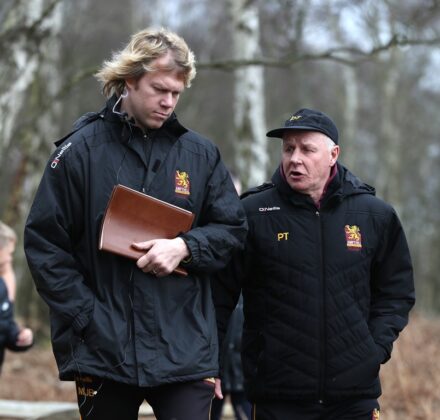
Have you undertaken any recruitment?
We had to let 16 players go and we handled that as well as we could have done in terms of helping guys get new gigs. But there’s still a Championship ahead at some stage so we’ve also now made ten new signings and have another six to do before the new season.
There are significant challenges for all clubs in the league and arguably we’re the smallest, but the flip-side is we own our own ground, any income coming in is our own and we won’t spend what we don’t have, so we’re in a reasonably good place. We’re still recruiting but we’re also under no illusions there could be more change coming if there’s a second spike.
What are you hearing on a start date for the Championship?
There’s a suggestion it could be December or January but we’ve all just got to be patient, flexible and be prepared to give a little.
The RFU have handled things pretty well on the back of circumstances nobody’s experienced before and to get the Premiership completed, which they’re on track to do, is very good. The rest of us are just keeping our fingers crossed.
If you do get a start date in December/January but crowds are not allowed, what happens then?
It’s out of our control, we can only follow what Public Health England and the RFU say and we’ll need eight weeks to prepare to play rugby whenever the season starts because there are some real challenges there with guys having not played for so long.
But I’ve got to be honest and say that if we can’t have a crowd, you can’t have a Championship – it’s that stark!
This isn’t a competition that benefits from subscription TV and all the other sponsorships and bits and pieces, so if there’s not some decent proportion of a crowd to bolster finances, you can’t have a competition.
What did you make of the 76-page Edward Griffiths review and his radical proposals around The English Championship (TEC) and professional player pathway?
I thought it was the most broad-ranging, visionary and ambitious plan I’ve seen for a young player pathway in England in a generation. The timing was awful with a pandemic going on, but it had the potential not only to change the pathway and change the Championship, but to potentially change the face of the game.
What elements of the TEC proposal did you most like?
Probably the most contentious ones, which were around having a significant number of your squad under the age of 24, the academy system restructure and hooking up with Premiership clubs and educational facilities. Some of the Premiership academies do a great job and you can see that with the people who come through them, but if you could link academies with an educational establishment, with potentially a player draft, as Griffiths proposed, I think that could be incredibly exciting.
In American sport the player drafts are huge media events that generate big money and if we want to be a 21st Century sport that interacts with younger people, we need to embrace stuff like that.
It may be too radical for some and the timing of the TEC report was unfortunate, but I haven’t seen a piece of work like it and I think Edward and the clubs behind it should be applauded for what they produced.
What did you think of Griffiths’ proposals around a reduced number of league games, conferences, a divisional competition and Championship representative team?
Whether we all like it or not – and it appears administrators globally are struggling with this – the TEC plan based around ‘less is more’ was probably the way to go. We’ve got to get player welfare at the centre of what we do because there’s been a lot of chasing the pound or euro at its expense.
We’ve all seen the comments from Dylan Hartley around the state he’s in and we can’t sustain that, so there is sense in what Edward’s report was proposing that I hope will resonate. There is so much of merit in his plan, but unfortunately it required so many compromises that it was probably a few steps too far for people at the current time.
In future, when we return to some semblance of normality, it could become the template for a once-in-a-lifetime opportunity to transform the way English rugby works. What Edward proposed would generate far more interest from younger people, particularly on the social media side, and unless we start spreading the word in state schools rather than just the elite private schools, rugby here is never going to achieve its potential. The TEC plan did all of these things.
Where do you stand on a moratorium on promotion and relegation?
You look at the recent Premiership games and see some of the mismatches, so I’d be very surprised if this was still open for debate.
We’ve got enough challenges as a sport to make ourselves relevant without removing the competitive element of promotion and relegation. If we’re trying to get people excited about what we’re about, getting rid of it would be ill-advised.
For TV interest and media coverage, we’re already way too far in from the back pages to be considering removing an element of competition that brings drama to what are otherwise now some pretty drab end of season games.
Remember Newcastle v Leicester last season – two sides, full-on, the loser probably going down? That’s what it’s all about. We’ve got to make our sport more relevant, not less.
There’s talk that RFU funding to the Championship may cease altogether next year. What are your thoughts on that?
The RFU are in a difficult situation along with the rest of us. However, the Championship is the senior competition that the RFU own and we need to work hand in hand to get through the pandemic and hopefully we’ll find a way to keep working together. Conversations behind the scenes are ongoing and I feel the Championship is incredibly relevant.
The TEC plan could have taken that to a completely different strata and the benefits for the game would have been huge, but it hasn’t happened.
What do you make of your close neighbours Bedford tying up a partnership with Northampton?
It’s a really smart move by the guys at Bedford. It will work well for Northampton because it will be getting their guys exposure to a competition that is fiercely fought.
We’ll continue to have a good relationship with Northampton while we also have good relationships with Saracens, Leicester and Wasps. These relationships have been mutually beneficial in the past and guys who’ve played for us like Ben Earl, Nick Isiekwe, Alex Mitchell, Elliott Obatoyinbo, Freddie Steward, James Fish, Reece Marshall, Sam Costelow and Dom Morris will all say they enjoyed being here.
Paul Turner’s contacts with Premiership clubs are invaluable and we’re very proud to have played a part in the development of these guys. Having Saracens in our division next season might make things a bit more complicated but I’m sure we’ll be able to work our way through that.
Ampthill had plans for a new ground, what’s happening with that project now?
We’re appreciative of the fact that our facilities are not fit for the competition and we need to improve them. That will happen at our new ground but it’s in cold storage at the moment. It’s still very much part of our future ambition, the pandemic is only delaying us for a short period of time.
Do you fear the long break caused by the pandemic will turn a lot of people away from rugby?
No. Our mini and junior sections are the crown jewels and we’re very proud of what we have here. Football is back so we’re going to lose some of our children to that in the short-term, but I’m confident most will stick with us. Our mini and youth are training again now under the ‘Rugby Ready’ format and we’ll have a lot of people running around this weekend. I’m an optimist, I have to be.


Latest News
Super Rugby Americas: Round Ten Review

British and Irish Lions
British and Irish Lions: Biggest winners and losers from Andy Farrell’s selection

















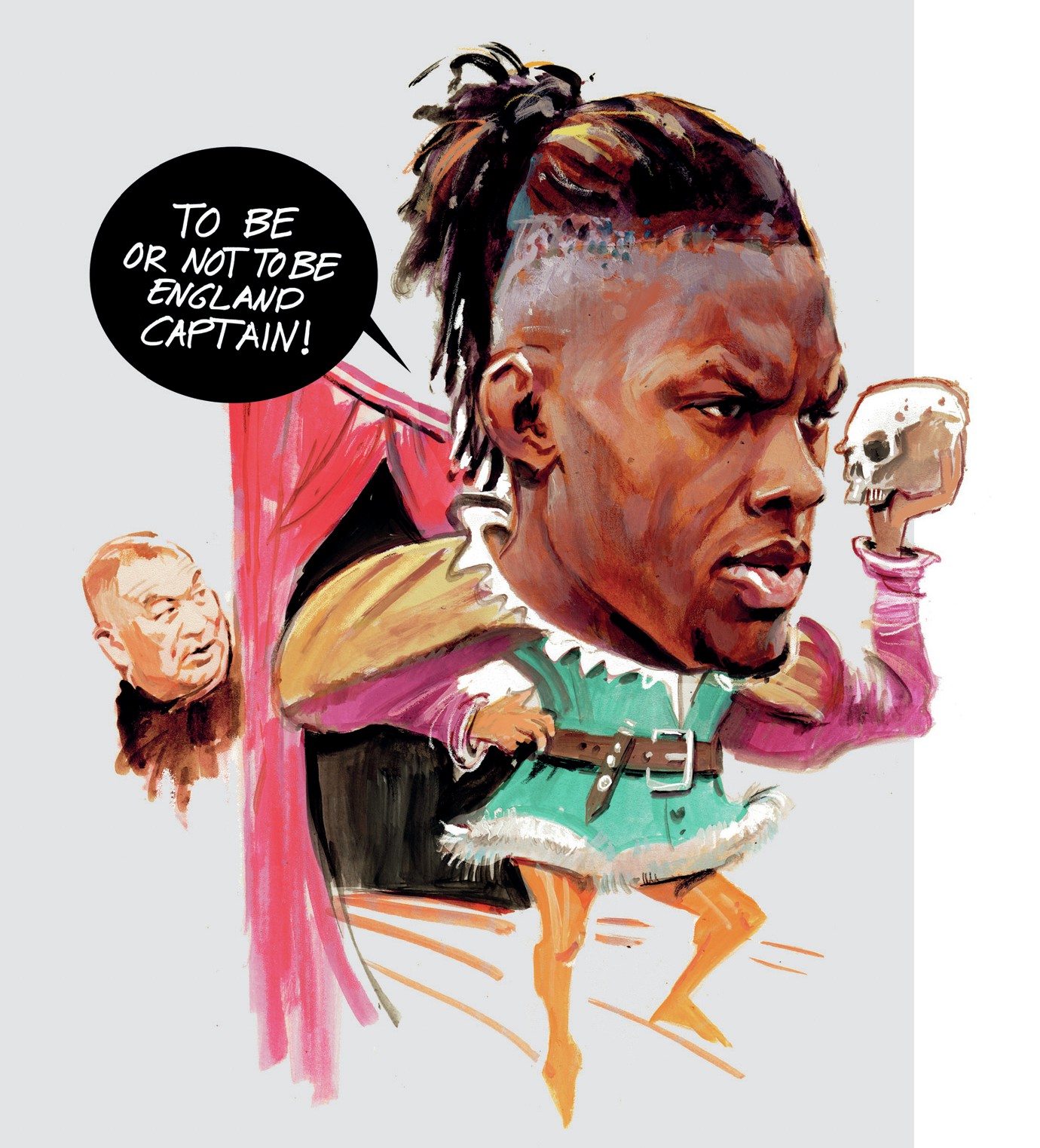
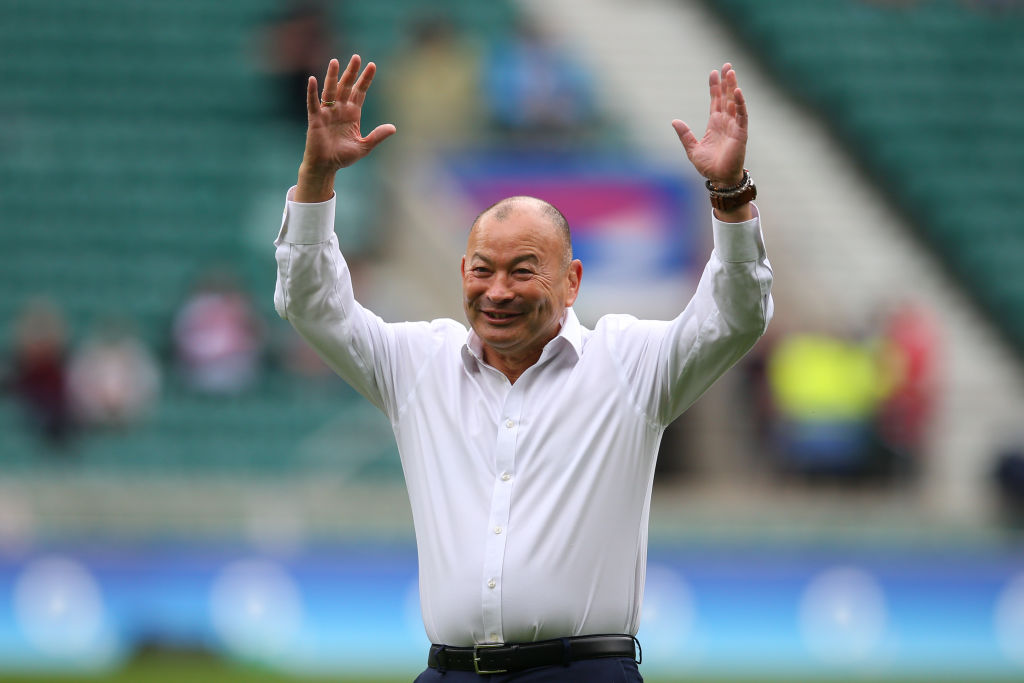
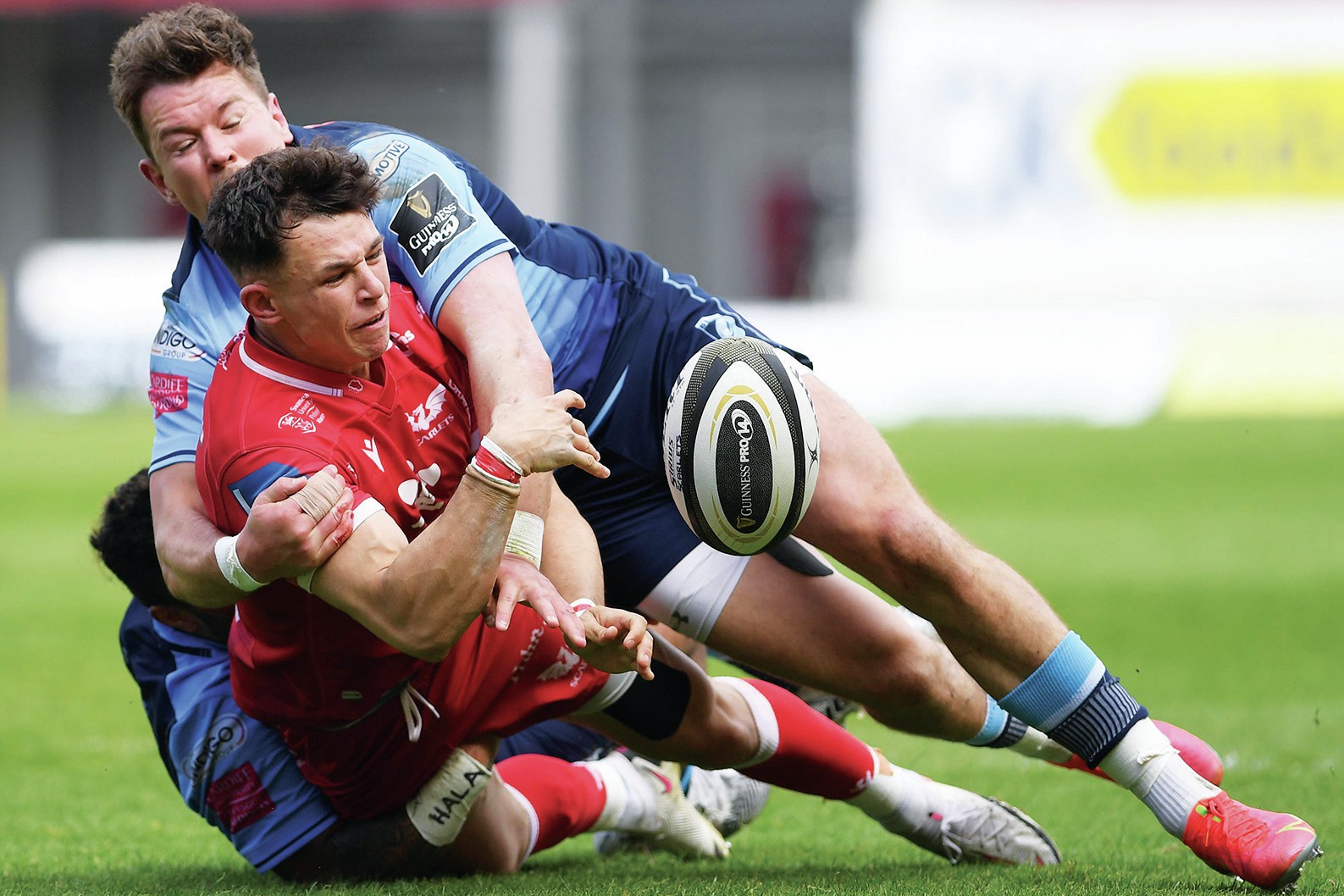
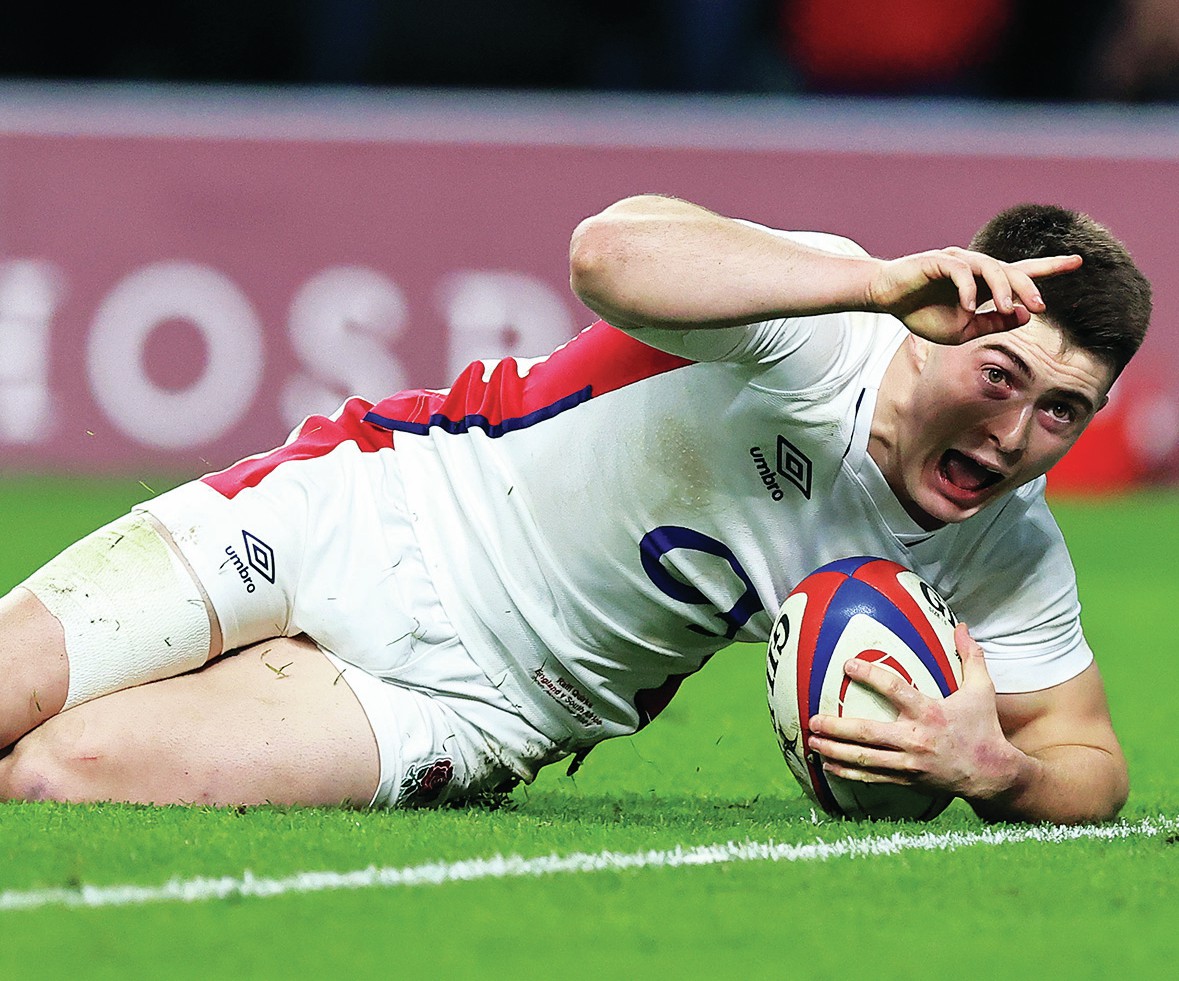
You must be logged in to post a comment Login